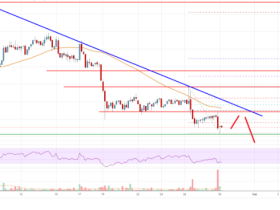In Latin America, crypto credit and debit cards are becoming increasingly popular. Users are gradually warming up to the idea of using cryptocurrencies as payment. During this time, two of the world’s largest cryptocurrency exchanges have announced their intentions to launch crypto-enabled cards.
Bitso, a cryptocurrency exchange located in Mexico, and Ripio, a cryptocurrency company based in Argentina, have both stated that they intend to offer cryptocurrency cards in the near future. During this time, Ripio and Mastercard will become partners with Bitso. Bitso will become partners with Mastercard.
The use of crypto cards is gaining popularity in Latin America.
In recent years, the traditional banking industry and the cryptocurrency business have been moving closer and closer together. This trend is expected to continue. More traditional financial institutions are beginning to accept cryptocurrencies and provide related services to their customer bases.
It has been reported that two of the largest exchange companies in Latin America have made the decision to launch cryptocurrency cards in the region. The usage of these cards would make it possible for customers to pay using digital currency for products and services.
As for Ripio, the company plans to produce a cryptocurrency card that is accepted everywhere by forming a partnership with the payment company Visa. Ripio anticipates that the use of cryptocurrencies for payments and purchases will increase as a result of the release of this new product.
Ripio claims that the Visa Crypto Card would provide customers with a cashback of 5% on all purchases made with the card. An executive at the company named Henrique Teixeira stated that more than 250,000 customers would have access to the card by the month of December.
In addition to this, Bitso is another one of the major cryptocurrency exchanges in Latin America as measured by trade volumes. Later on in the year, the cryptocurrency company also intends to offer a cryptocurrency card.
The chief executive officer of the cryptocurrency company, Daniel Vogel, maintains that the cryptocurrency “winter” will end very soon. Because of this, the corporation has decided to demonstrate that it is serious about the potential of digital assets by taking this action.
The Real World Applications of Cryptocurrency Being Adopted By Latin Americans
In addition, Vogel stated that the company would be launching the cryptocurrency card in partnership with Mastercard. However, he did not provide a timeframe for the debut of the crypto debit card, despite the fact that he indicated that some people anticipate its release.
According to him, the users of this payment instrument, who can now pay for items using cryptocurrency, will gain from having access to it. He went on to clarify more specifically:
“The corporation has seen the ways in which customers make use of the exchange’s funds. On paydays, users will transfer money onto the site so they can trade it for digital dollars. Following that, they would change the amount to Pesos so that they could utilize it as a form of payment. Consider how much simpler everything would be if we had crypto cards.
The cashback feature is included on Bitso’s crypto card, just like it is on other crypto cards that have been launched in other locations. The business announced that it would roll out the card initially in the Mexican market.
The study that was just released by Kaiko, a portal that offers data on the cryptocurrency market, is consistent with these recent debuts. According to the survey, people in Latin America are interested in learning how to utilize cryptocurrencies for payments and other real-world applications.
They are less worried with commercial interactions. As a result, the number of exchangers is growing to satisfy the needs of users.








Leave a Reply